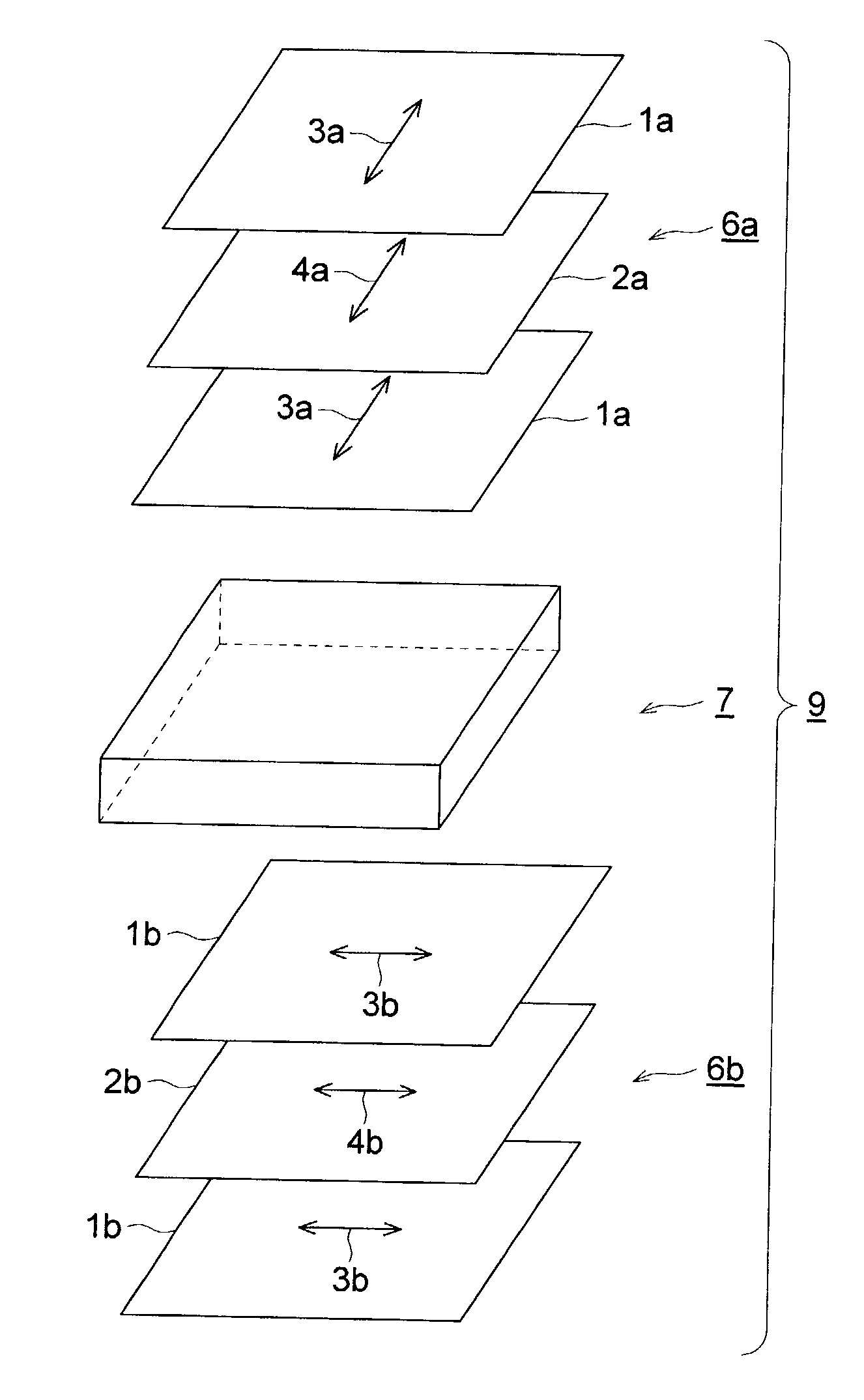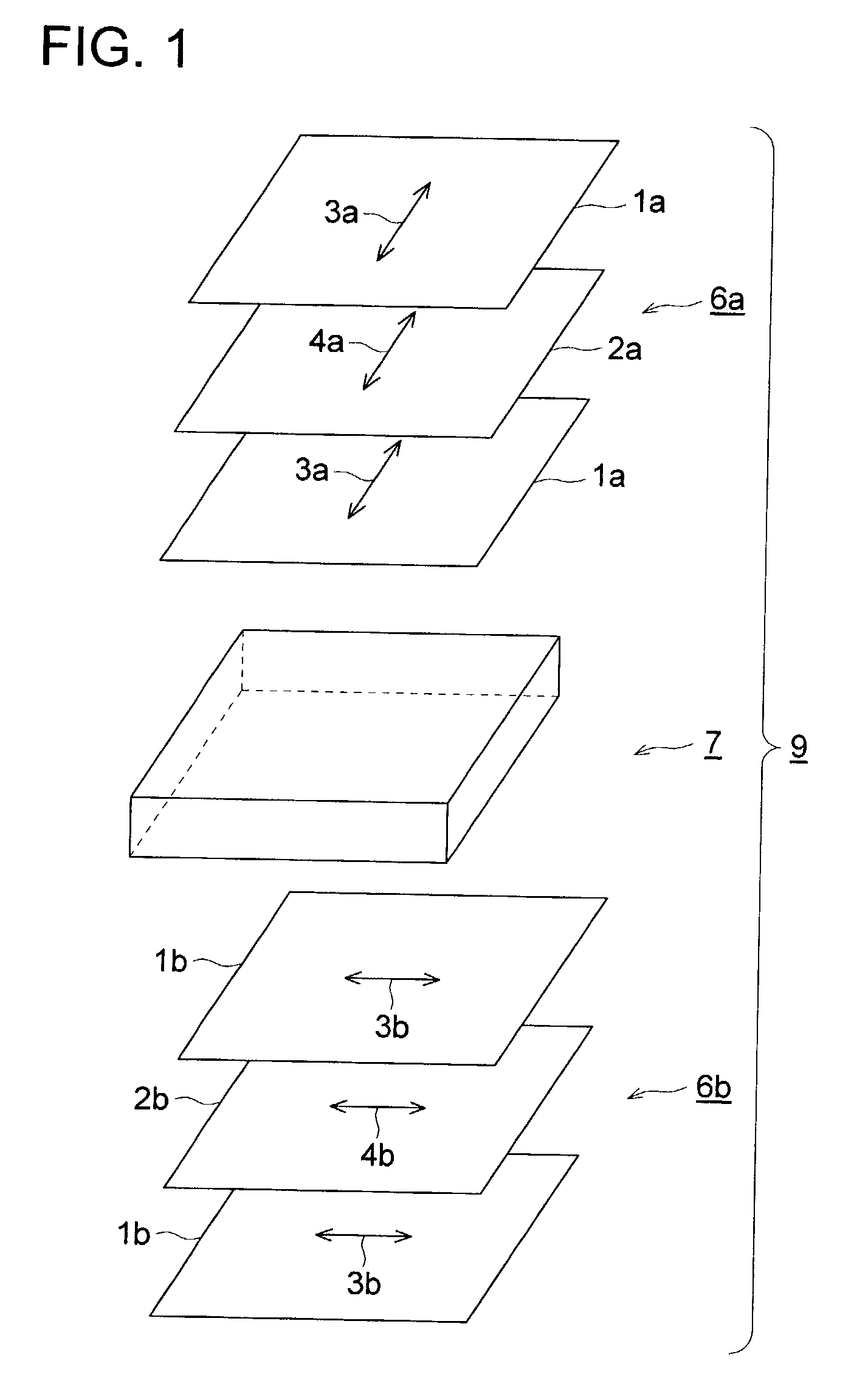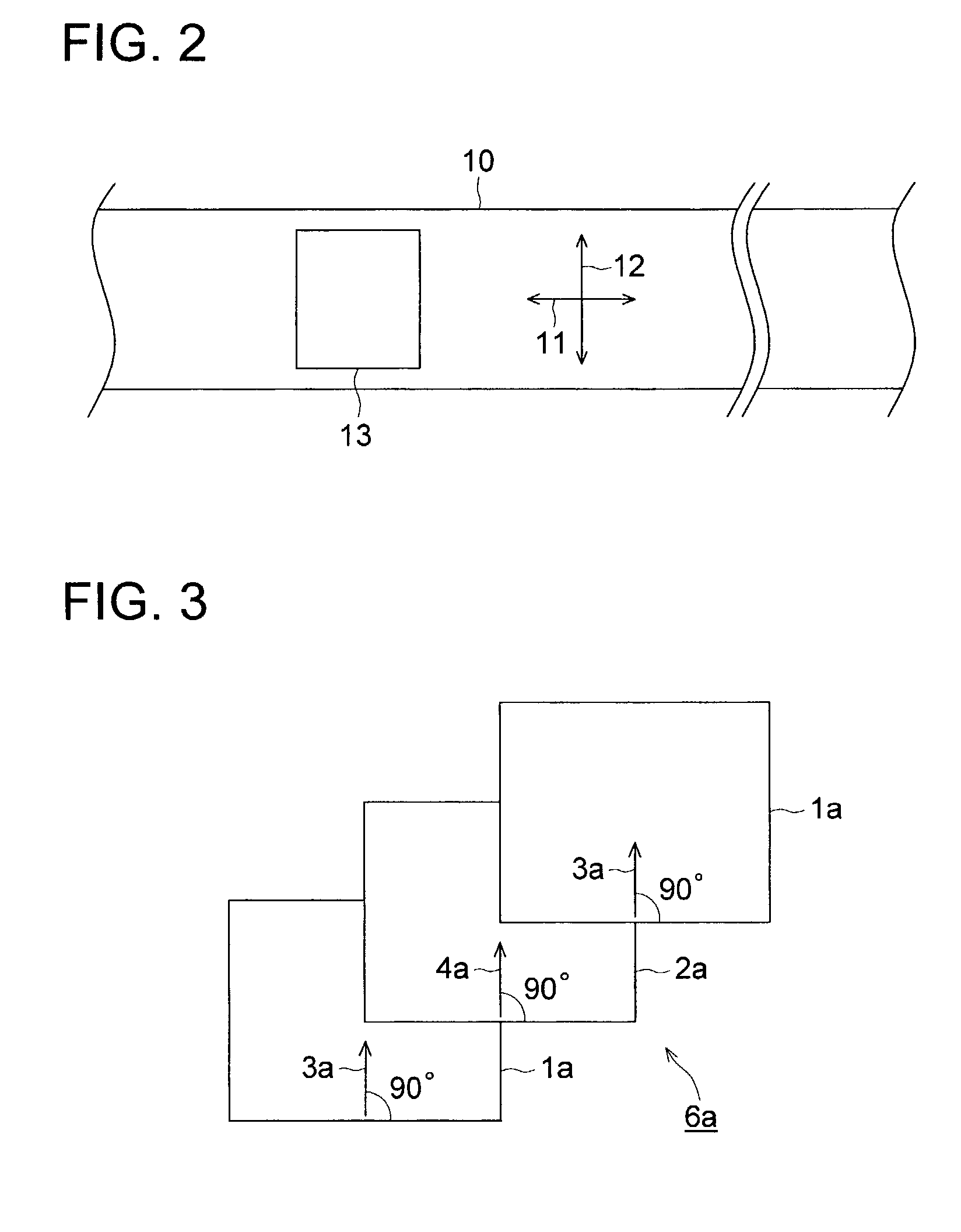Polarizing plate having a stretched film on a side thereof and liquid crystal display employing the same
a polarizing plate and stretched film technology, applied in the direction of polarizing elements, instruments, transportation and packaging, etc., can solve the problems of reducing the product or manufacturing cost, the viewing angle is small, and the thickness cannot be increased, so as to reduce the dimensional change (shape change), the effect of excellent optical properties and simple constitution
- Summary
- Abstract
- Description
- Claims
- Application Information
AI Technical Summary
Benefits of technology
Problems solved by technology
Method used
Image
Examples
example 1
>
(Preparation of Cellulose Ester Film 1)
[0184]Cellulose acetate propionate (with an acetyl substitution degree of 2.00 and a propionyl substitution degree of 0.80 and a viscosity average polymerization degree of 350) of 100 parts by weight, 5 parts by weight of ethylphthalylethyl glycolate, 3 parts by weight of triphenyl phosphate, 290 parts by weight of methylene chloride, and 60 parts by weight of ethanol were placed into a tightly sealed vessel, and gradually heated to 45° C. in 60 minutes while slowly stirred. Pressure in the vessel was 121 kPa. The resulting solution was filtered employing Azumi filter paper No. 244, produced by Azumi Roshi Co., Ltd., and allowed to stand for 24 hours to remove foams in the solution. Thus, a cellulose ester solution was prepared.
[0185]Five parts by weight of the cellulose acetate propionate described above, 6 parts by weight of TINUVIN 326 (produced by Ciba Specialty Co., Ltd.), 4 parts by weight of TINUVIN 109 (produced by Ciba Specialty Co., ...
example 2
[0257]Polarizing plate samples 9 through 14 were prepared according to the following procedures:
9>>
(Preparation of Cellulose Ester Film TAC-A)
[0258]Cellulose ester film TAC-A was prepared according to the following procedures:
[0259]Cellulose triacetate (with an acetyl substitution degree of 2.92 and a viscosity average polymerization degree of 300) of 100 parts by weight, 2 parts by weight of ethylphthalylethyl glycolate, 8.5 parts by weight of triphenyl phosphate, 350 parts by weight of methylene chloride, and 50 parts by weight of ethanol were placed into a tightly sealed vessel, and gradually heated to 45° C. in 60 minutes while slowly stirred. Pressure in the vessel was 121 kPa. The resulting solution was filtered employing Azumi filter paper No. 244, produced by Azumi Roshi Co., Ltd., and allowed to stand for 24 hours to remove foams in the solution. Thus, a cellulose ester solution was prepared.
[0260]Five parts by weight of the cellulose triacetate described above, 3 parts by ...
PUM
| Property | Measurement | Unit |
|---|---|---|
| thickness | aaaaa | aaaaa |
| thickness | aaaaa | aaaaa |
| thickness | aaaaa | aaaaa |
Abstract
Description
Claims
Application Information
 Login to View More
Login to View More - R&D
- Intellectual Property
- Life Sciences
- Materials
- Tech Scout
- Unparalleled Data Quality
- Higher Quality Content
- 60% Fewer Hallucinations
Browse by: Latest US Patents, China's latest patents, Technical Efficacy Thesaurus, Application Domain, Technology Topic, Popular Technical Reports.
© 2025 PatSnap. All rights reserved.Legal|Privacy policy|Modern Slavery Act Transparency Statement|Sitemap|About US| Contact US: help@patsnap.com



